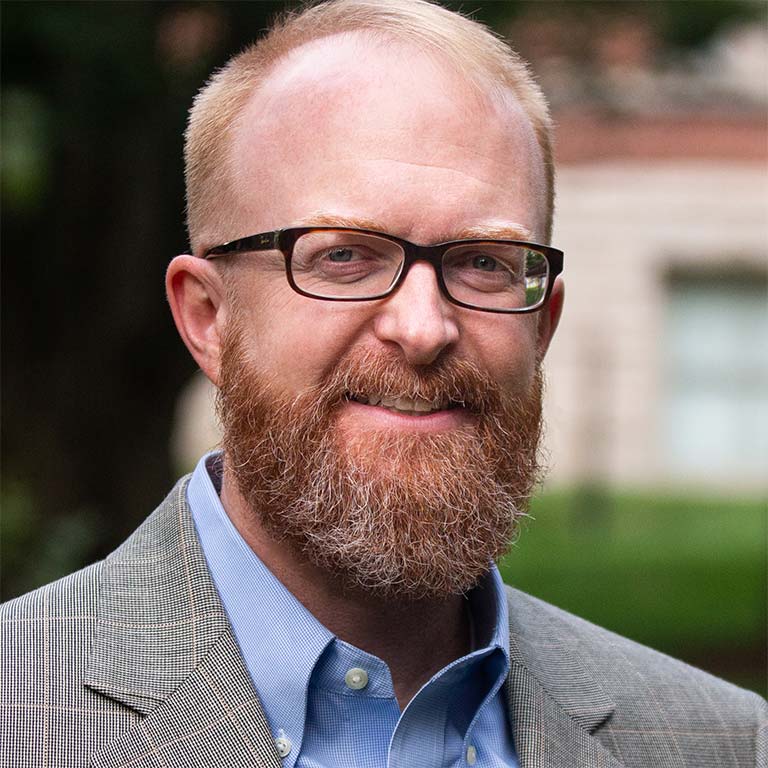Disability is a nearly universal condition. Everyone becomes disabled if they live long enough. Dr. Benjamin Irvin’s HIST-A 398 Disability in the United States will help students explore the idea of disability as it has pertained to a variety of institutions, eras, and events in U.S. history including slavery and emancipation, immigration, the Progressive Era, World Wars I and II, and the Great Depression.
An interview with Dr. Benjamin Irvin, a social and cultural historian of early America and the United States in the Department of History, is below.
Why is it important for students to take this course?
Dr. Irvin: “Disability in the United States” will challenge the way students think about their bodies, their minds, and the worlds in which they live. This course is fundamentally concerned with ableism, a discriminatory belief system so deeply embedded in our worldview that it is almost imperceptible, at least to persons who do not bear the brunt of it daily. Yet, ableism persists in our language, our built environment, and our human interactions.
Once we grasp what ableism is and how it works, we begin to understand that it governs almost every aspect of our lives. This course is revelatory in that regard. I started to say, "This course is eye-opening," but I caught myself, because eye-opening is arguably an ableist term.
What type of students would you encourage to take this course?
Dr. Irvin: This course will engage any student who wishes to learn more about the human condition, but it is particularly well suited for students interested in U.S. history, medicine, law, and the body. I am often approached by students with disabilities, and by students whose family members have disabilities, and they tell me that they appreciate the course because it centers and provides historical context for their experiences. I believe, though, that able-bodied students have just as much to learn from the course, because it compels us to rethink our selves and our social relations.
Where do you suggest people can educate themselves about this topic if they are unable to take the class?
Dr. Irvin: The library! Many excellent books and videos have been produced in the fields of disability history and disability studies. But where and how people educate themselves about disability is less important than that they do. It’s a simple thing to follow disability activists and educators on Twitter, Instagram, or TikTok. Most of us can learn a lot by just paying attention to what persons with disabilities have to tell us.
If this class was condensed into a single guest lecture, what parts of the course would you highlight?
Dr. Irvin: Oh, there are many exciting possibilities. You could pull several threads of disability analysis from African American history, and tie them together in an astonishing lecture about slavery, the Civil War, and Reconstruction, for example. And the long history of veterans’ disability reveals how U.S. lawmakers have attempted, often unsuccessfully, to minimize the physical and psychological effects of war.
But if I could only choose one topic for a guest lecture, it would probably be the freak show. The freak show is a centerpiece of disability history and scholarship. Freak shows flourished in the late nineteenth and early twentieth centuries, but remnants of the freak show remain with us today, online and in a variety of theatrical settings. In the freak show, spectators paid money to gawk at unique bodies, often racialized or sexualized for public display. But some historians have argued that freak shows provided persons with disabilities, who often faced discrimination in hiring, not only the chance to earn a good wage, but also the rare opportunity to control the gaze of others. The freak show opens fascinating discussions about power dynamics and bodily difference.
How do you feel that this year’s theme fits into what is going on in the world right now?
Dr. Irvin: Just within the last few days, in late February 2022, the Covid mask mandate has been allowed to expire, Texas Governor Greg Abbott has ordered state officials to investigate families who pursue gender-affirming care for their children, and the Russian army has invaded Ukraine.
Identity and Identification strikes me as a critically important theme for this moment. It will allow us to wrestle with fundamental questions about who we are as individuals, communities, and nations. It will enable us to think about the ways people align themselves with or distinguish themselves from other human beings. It will empower us to critique, and possibly to remodel, the systems of classification that order our lives.
View this course
View Themester 2022 courses



 The College of Arts
The College of Arts